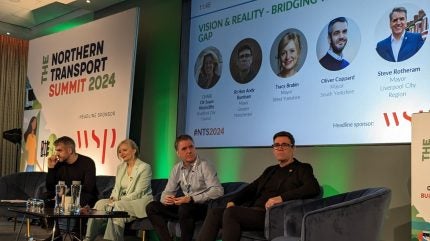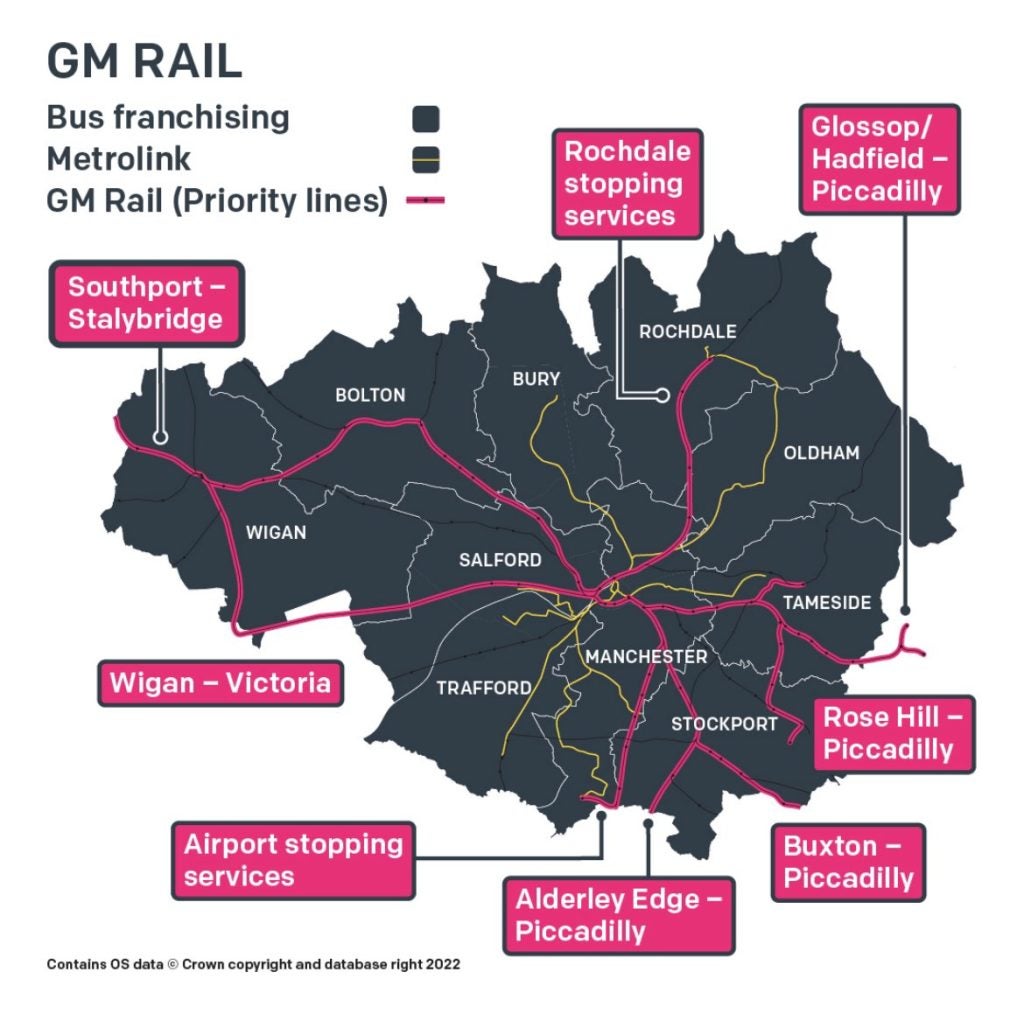
The UK rail industry has been in a holding pattern since the cancellation of the “High Speed Two” (HS2) project in October, but at the Northern Transport Summit regional mayors of major cities hailed the possibility of a new “golden era” for the sector.
Speaking to the Manchester conference a day after calling for TOC Avanti West Coast to lose its franchise, Mayor of Greater Manchester Andy Burnham said his planned expansion of the city’s “Bee Network” to commuter rail and the other projects underway across the North of England could be transformative.
“It could be a golden era in terms of northern transport. This is a major change moment,” he told attendees.
Although Burnham and his colleague, Mayor of the West Midlands Andy Street, have complained about the cancellation of the northern leg of HS2, he implored the industry to help the politicians “get beyond the arguments” and improve the rail offer in the country.

Alongside the newly announced extension to the scope of Manchester’s publicly-owned Bee Network, Burnham and Street revealed their preferred option for a private sector replacement of the cancelled HS2 legs.
The plan would build a new rail line to Manchester Piccadilly from Handacre, just north of Birmingham.
Change has to come
But Burnham said himself that he would “not sugarcoat” his address and called for a “culture change in the rail industry” to allow the currently fragmented network to be integrated into a holistic transport solution in the city, and across the country.
He did offer conciliatory words, however, along with the message that UK private sector rail must be aware that speed is of the essence.
“We don’t want more ways to be arguing with the rail industry. We don’t do it for sport, just to score political points. What you hear is the frustration we feel for our residents, our businesses.
“Every Mayor on this panel wants to talk with you about solutions,” he added.
National boost through local initiatives
While HS2’s northern leg cancellation grabbed headlines at the end of 2023, its knock-on effects have also damaged the UK rail sector.
Alstom’s rolling stock assembly plant at Derby’s Litchurch Lane has warned it faces closure if new contracts are not secured, with at least 1,300 jobs at risk.
“The Government has to own that one. That is an HS2 [cancellation] consequence,” Burnham told Railway Technology.
But he pointed to work done across the region, including by Liverpool’s metro Mayor Steve Rotherham, to bring buses into public ownership – much like the plan for commuter rail.
“As the Mayors of the M62 corridor are starting to put buses under public control, what it’s leading to is a new era of growth in British bus manufacturing… Something similar is needed for the rail industry, particularly in train manufacturing.”
“It would be very exciting to have a government looking at British built trains to come onto the Bee Network,” he added.
The event was the final public address by the Mayors before the May local elections across the UK, as they enter the ‘purdah’ period.



